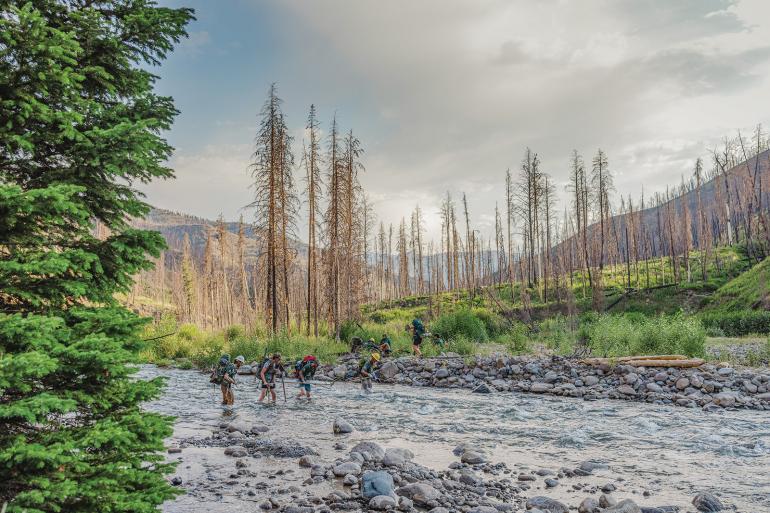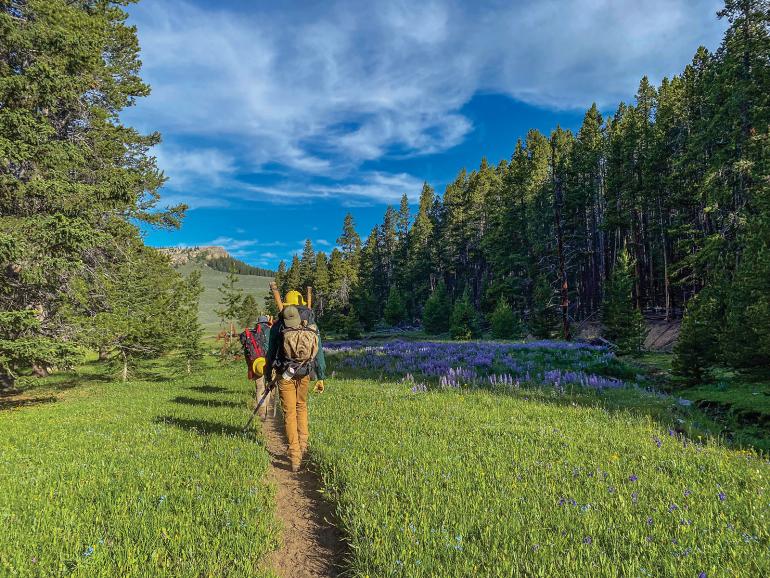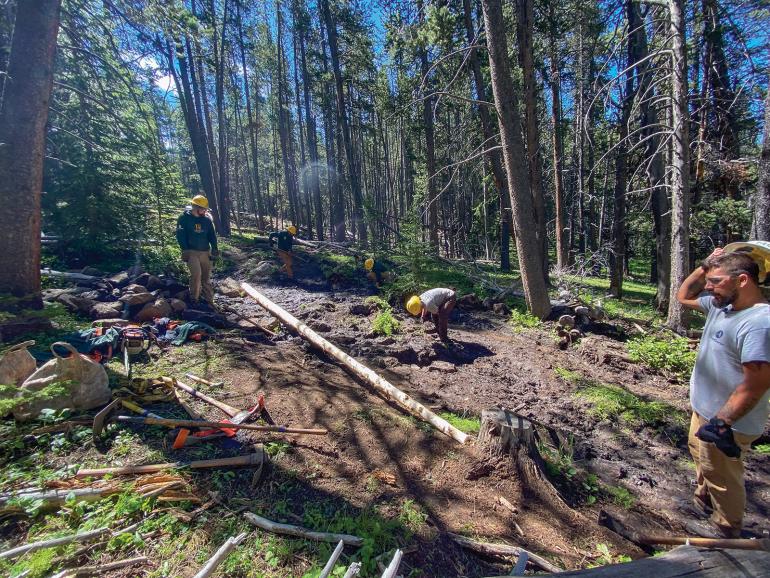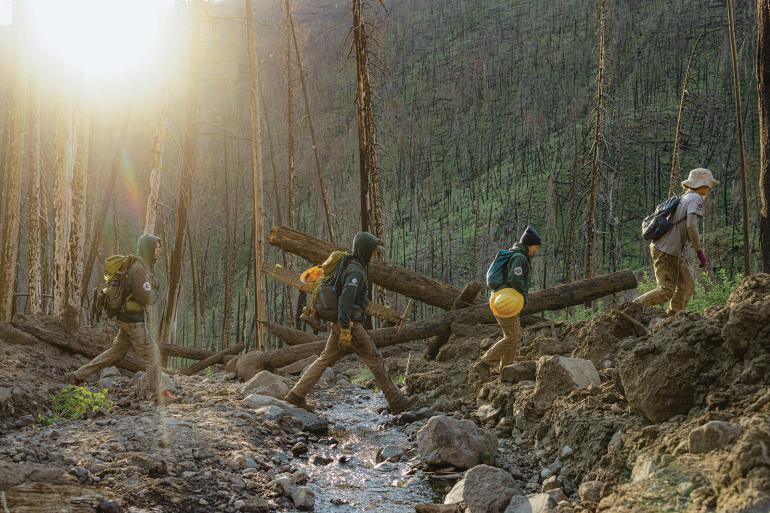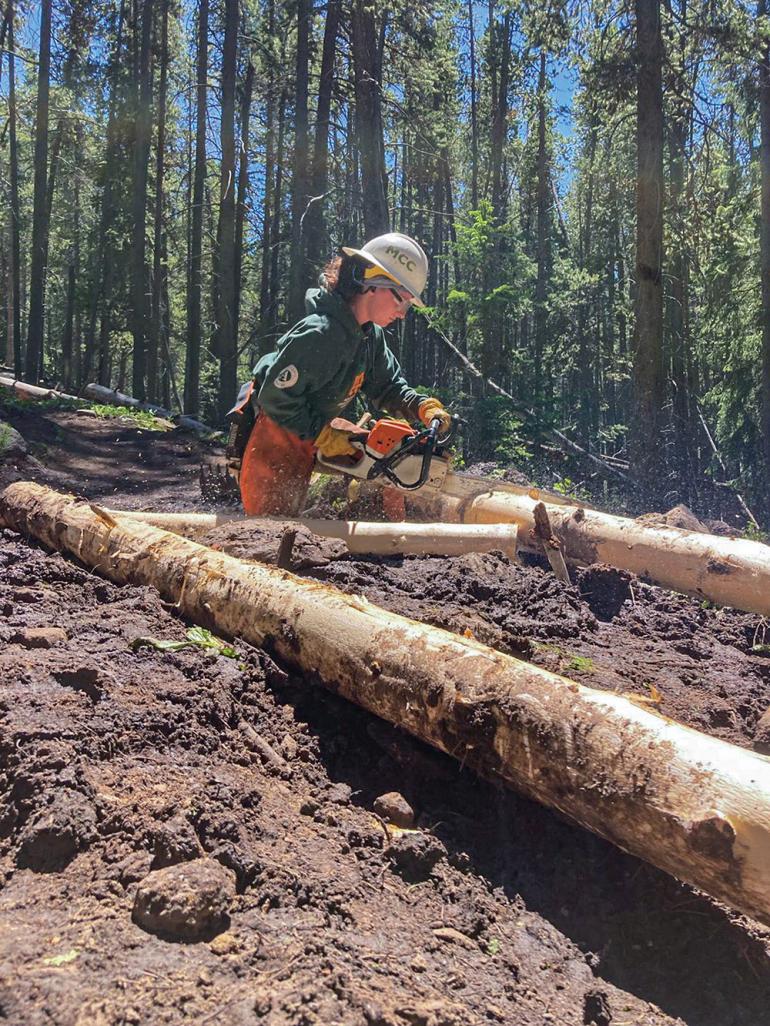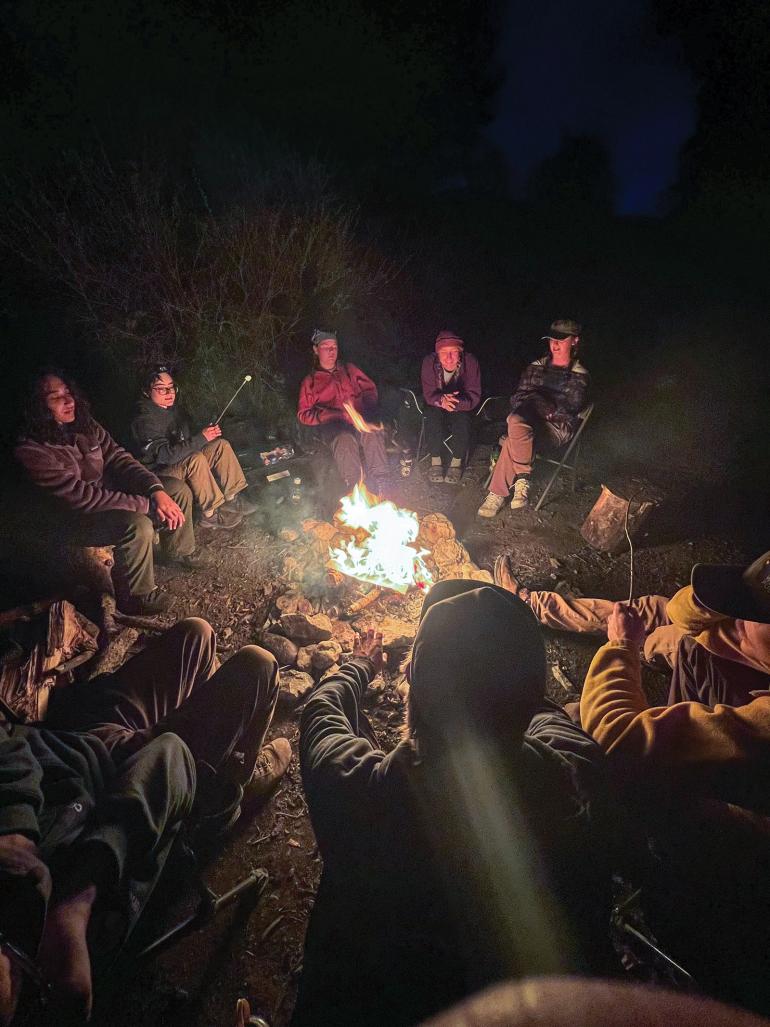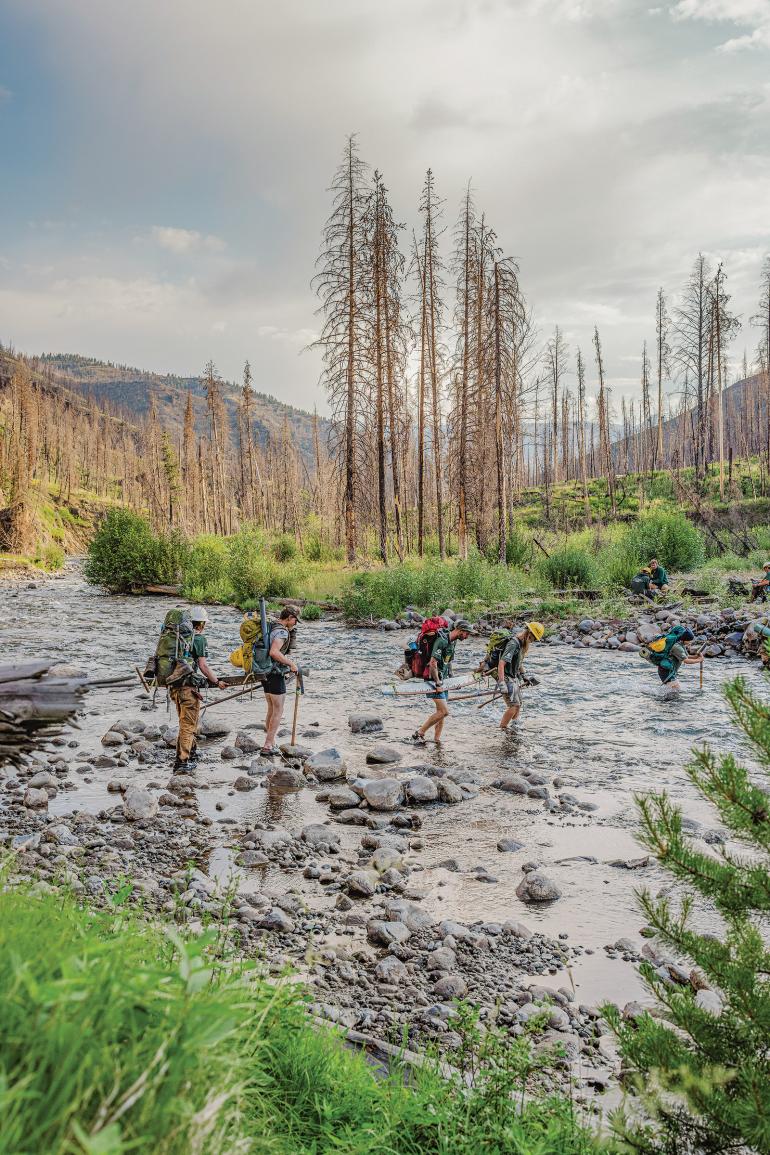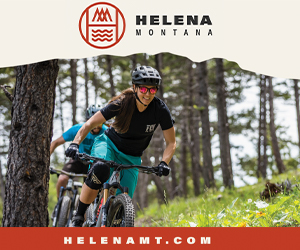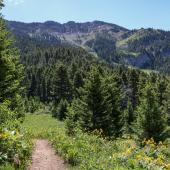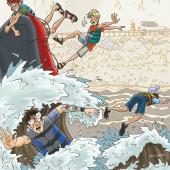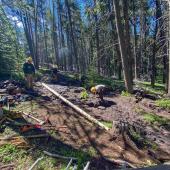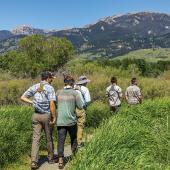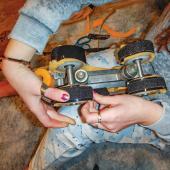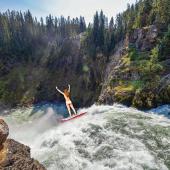Clean Slate
Confronting grief in the Montana Wilderness.
Turning 20 in Yellowstone National Park felt like a rite of passage. It’s a treasured memory. Sitting on the edge of a creek, face caked in sweat and dirt, I felt satisfied—physically, from a long day of manual labor, and emotionally, like I was inexplicably at the right place at the right time. Washing my face, I watched the particles of dirt and charcoal flow downstream, swirling then disappearing. Somehow, it felt like a clean slate, a much-needed re-fresh on life—and one that only the wild landscapes of Montana could provide.
Over the course of the summer, I learned backpacking 101, backcountry safety, and endless trail-building skills. I learned about the wilderness and my place within it.
It was early August, and I had spent the last three months building and repairing trails in the backcountry of the Greater Yellowstone region. I’d arrived in Montana only three months before. I was nineteen—a sophomore in college—and had just lost my mother to ovarian cancer. Heartbroken and unable to endure another hot, stale summer in the Phoenix suburbs, I applied to Montana Conservation Corp (MCC), an AmeriCorps-funded organization that provides young adults with the opportunity to gain work experience through trail-building and other hands-on conservation work. I gladly accepted a job offer a few weeks later, hoping to experience new wild spaces while giving myself space to confront immense grief.
Before that summer, I’d never hiked more than ten miles. I wasn’t in the best physical shape, I didn’t know the slightest thing about outdoor gear, and I was terrified of shitting in the woods. I was entering unknown territory. How was I going to do this? How could I survive in the wilderness? How would I navigate life without my mom? The answers, it turns out, would come—it just required getting a little dirty.
Based out of MCC’s regional office in Bozeman, I traveled with a crew of four other people, traversing deep woods, grasslands, burn scars, and endless mountains. Our typical schedule involved an intensive nine days on, followed by five days off. Every hitch, we would travel to a new area, set up camp, and plan out the week. Each morning, we’d wake up bright and early to the glowing honey hues of our tents, mustering up everything we had to leave our warm sleeping bags and start the day. No matter where we were—Montana, Wyoming, or Idaho—mornings always started with breakfast and stretching. A tight routine was necessary to ensure maximum efficiency and sanity. Most of the season, we hauled soil, rock, logs, and built check-dams and water bars on trails. We had other projects, too, like cutting junipers to prevent encroachment into aspen groves or building pronghorn-friendly fencelines to allow safe migration. No matter the project, most days were full of trail songs, laughter, long stories, and belching battles.
These people taught me more about who I was—and my own resilience and power—than the work ever could.
Over the course of the summer, I learned backpacking 101, backcountry safety, and endless trail-building skills. I learned about the wilderness and my place within it. I learned about leadership, communication, and conflict resolution. Each work hitch increased my skills and confidence. Despite the long, tiresome days and frustrating moments, I created meaningful connections with my crew. Among them: a loving father and writer who brought me stories from the depths of the Appalachians; a recent college graduate who laughed easily and imparted career advice in the world of conservation; a gentle, kind man from Iowa who sat in silence and shared old country tunes from when “music was good”; and a compassionate, hilarious spirit who gave me hugs on hard days and remains a great friend to this day. These people taught me more about who I was—and my own resilience and power—than the work ever could.
MCC got me through the most difficult time in my life. The land of the Greater Yellowstone region comforted and held me as my mother once did—accepting my tears and wiping them away. She drew my tears out, pushed me to my physical and emotional boundaries, and stripped down all my tough, calloused layers to reveal a raw, young, vulnerable heart. The land brought me immense comfort, joy, and healing that I could not have found anywhere else. It gave me the experience of a lifetime and the confidence to navigate life and the depths of grief.
In one summer, I transformed from being unfamiliar with wildness to fully inundated with it—knowing it, loving it, having it hold me, guide me, and challenge me to every edge. I entered the backcountry full of doubt, fear, and heartbreak. I left with strength, resilience, and hope for the unknown future ahead. Just as natural landscapes can bounce back from disturbance and tragedy, I learned that I am capable of the same thing. I can make it through the darkest moments and come out on the other side, not only alive, but thriving—as the land and wildlife does again and again, year after year.
MCC has regional offices in Bozeman, Helena, Kalispell, and Missoula. To learn more about the programs they offer, visit mtcorps.org. Interested in supporting MCC and their mission? Donate today at mtcorps.org/support.


